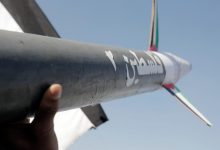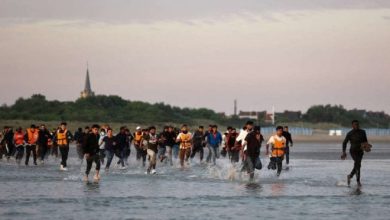Houthi Attack on British Oil Ship: Yahya Saree Reveals Operation Details

Watan-The military spokesperson for the Houthi group, Ansar Allah, announced on Friday the targeting of a British oil ship named “Marlin Lwanda” in the Gulf of Aden, causing it to be directly hit and subsequently catching fire.
This comes as the U.S. military announced that one of its warships intercepted a missile launched by the Houthi group. The Houthis stated that their maritime operations in the Red Sea are in support of Palestinians in Gaza amid the ongoing conflict between Israel and Hamas.
Yahya Saree reveals details of the targeting of a British ship
The military spokesperson for the Houthis, Colonel Yahya Saree, stated that this operation is a victory for the injustice faced by the Palestinian people and a response to the American and British aggression against Yemen. He revealed details of the attack, stating that the Yemeni armed forces’ naval units targeted the British oil ship with appropriate naval missiles, resulting in a confirmed hit and complete burning.
الناطق العسكري لـ”أنصار الله الحـ.ـوثيين” يعلن استهداف سفينة نفط بريطانية بخليج عدن وإصابتها مباشرة ما أدى إلى احتراقها pic.twitter.com/OqYAUV5iLG
— الجزيرة مصر (@AJA_Egypt) January 26, 2024
He emphasized the continuation of the group’s operations in the Red and Arabian Seas against Israeli ships or those heading to occupied Palestinian ports until the aggression stops and food and medicine are delivered to the besieged Palestinian people in Gaza.
Colonel Saree affirmed the group’s commitment to taking all military measures within the right to defend Yemen, expressing practical solidarity with the Palestinian people.
The Houthis began targeting ships in the Red Sea in November, claiming to target vessels associated with Israel to show solidarity with Palestinians in Gaza. Weeks ago, they declared that American and British interests are also legitimate targets, following U.S.-British airstrikes on Houthi-affiliated sites in Yemen.
Many shipping companies have altered their routes from the Red Sea, opting for longer and more costly paths around the Cape of Good Hope in South Africa to avoid Houthi attacks.






